Related Research Articles

Syed Ali Shah Geelani (1929–2021) was an Islamist, pro-Pakistani, Jihadist, Kashmiri-separatist leader in the Indian union territory of Jammu and Kashmir, regarded as the father of the Kashmiri jihad.

Ataullah Mengal was a Pakistani politician and feudal figure. He was the head of the Mengal tribe until he nominated one of his grandsons, Sardar Asad Ullah Mengal, as his tribal successor. He was also the 1st Chief Minister of Balochistan during Zulfikar Ali Bhutto's premiership from 1 May 1972 to 13 February 1973. He died on 2 September 2021 in Karachi.
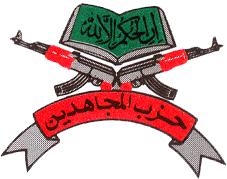
Hizbul Mujahideen, also spelled Hizb-ul-Mujahideen, is an Islamist militant organization operating in the Kashmir region. Its goal is to separate Kashmir from India and merge it with Pakistan. It is one of the most important players that evolved the narrative of the Kashmir conflict from nationalism to radical jihad.
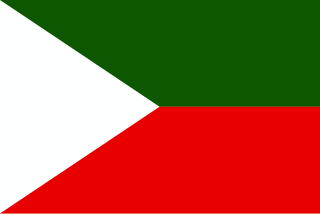
The Jammu Kashmir Liberation Front (JKLF) is a militant separatist organization active in both the Indian-administered and Pakistani-administered territories of Kashmir. It was founded by Amanullah Khan, with Maqbool Bhat also credited as a co-founder. Originally a militant wing of the Azad Kashmir Plebiscite Front, the organization officially changed its name to the Jammu Kashmir Liberation Front in Birmingham, England on 29 May 1977; from then until 1994 it was an active Kashmiri militant organization. The JKLF first established branches in several cities and towns of the United Kingdom and other countries in Europe, as well as in the United States and across the Middle East. In 1982, it established a branch in the Pakistani-administered territory of Azad Jammu and Kashmir, and by 1987, it had established a branch in the Indian-administered Kashmir Valley.
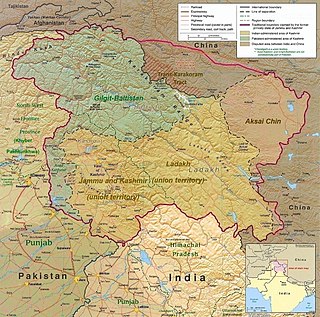
The Kashmir conflict is a territorial conflict over the Kashmir region, primarily between India and Pakistan, and also between China and India in the northeastern portion of the region. The conflict started after the partition of India in 1947 as both India and Pakistan claimed the entirety of the former princely state of Jammu and Kashmir. It is a dispute over the region that escalated into three wars between India and Pakistan and several other armed skirmishes. India controls approximately 55% of the land area of the region that includes Jammu, the Kashmir Valley, most of Ladakh, the Siachen Glacier, and 70% of its population; Pakistan controls approximately 30% of the land area that includes Azad Kashmir and Gilgit-Baltistan; and China controls the remaining 15% of the land area that includes the Aksai Chin region, the mostly uninhabited Trans-Karakoram Tract, and part of the Demchok sector.

Mian Iftikharuddin was a Pakistani politician, activist of the Indian National Congress, who later joined the All-India Muslim League and worked for the cause of Pakistan under the leadership of Muhammad Ali Jinnah.
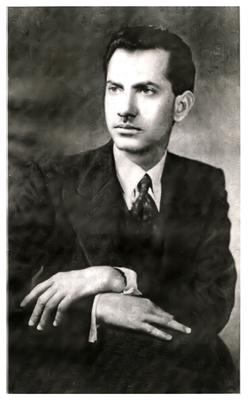
Sardar Muhammad Ibrahim Khan was an Azad Kashmiri leader and politician. He led the 1947 Poonch Rebellion against the State of Jammu and Kashmir. He also served as the first President of Azad Kashmir. His dismissal in 1950 led to the 1955 Poonch Uprising against Pakistan. Khan was the longest serving president of Azad Kashmir, having served a total of almost 13 years across four tenures.
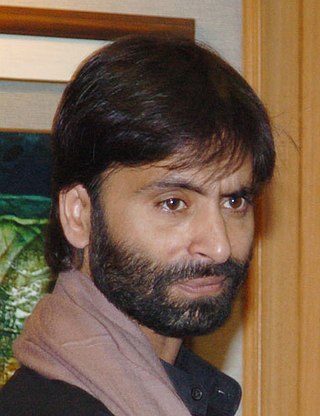
Yasin Malik is a Kashmiri separatist leader and former militant who advocates the separation of Kashmir from both India and Pakistan. He is the Chairman of the Jammu Kashmir Liberation Front, which originally spearheaded armed militancy in the Kashmir Valley. Malik renounced violence in 1994 and adopted peaceful methods to come to a settlement of the Kashmir conflict. In May 2022, Malik pleaded guilty to charges of criminal conspiracy and waging war against the state, and was sentenced to life imprisonment.

Maqbool Bhat also spelt Maqbool Butt was a Kashmiri separatist leader who migrated to Pakistan and founded the militant group National Liberation Front (NLF), which was a precursor to the present day Jammu Kashmir Liberation Front (JKLF). Bhat carried out multiple attacks in Jammu and Kashmir (state). He was captured and sentenced to double death sentence. He was hanged on 11 February 1984 in Tihar Jail in Delhi. His body was not returned to Kashmiris.
Sultan Mehmood Chaudhry is an Azad Kashmiri politician who hails from Mirpur. He served as Prime Minister of Azad Kashmir between July 1996 to July 2001 and is currently serving as the President of Azad Kashmir since 25 August 2021.
There are separatist movements in Pakistan which are based on ethnic and regional nationalism, including independence movements. The government of Pakistan has attempted to subdue these separatist movements.
Muhammad Ahsan Dar is an Indian Islamist militant separatist leader from Jammu and Kashmir. He was the founder of an Islamist militant group called Ansarul Islam in mid-1980s, which later became the core of Hizbul Mujahideen. Formed in September 1989, Hizbul Mujahideen was an umbrella group of a dozen Islamist groups in the Kashmir Valley and was sponsored by Pakistan's Inter-Services Intelligence and Jamaat-e-Islami. Ahsan Dar served as the head of the united group for a few years, but was marginalised the Jamaat-e-Islami patron Syed Salahuddin. He later founded a new group called Muslim Mujahideen in 1992, which operated for a few years. It was eventually neutralised by Hizbul Mujahideen and Indian security forces, and Ahsan Dar retired from militancy.

Amanullah Khan was the founder of the Jammu and Kashmir Liberation Front (JKLF), a Kashmiri militant activist group that advocates independence for the entire Kashmir region. Khan's JKLF initiated the ongoing armed insurgency in Indian-administered Kashmir with backing from Pakistan's Inter-Services Intelligence, which lasted until Pakistan dropped its support of secular Kashmiri separatists in favour of pro-Pakistan Islamist groups, such as the Hizbul Mujahideen. In 1994, the JKLF in the Kashmir Valley, under the leadership of Yasin Malik, renounced militancy in favour of a political struggle. Amanullah Khan disagreed with the strategy, causing a split in the JKLF.
Baherwal Kalan is a village in the Kasur District of Punjab, Pakistan. The neighboring villages are Bhonikey, Rore, Taragarh, Khudian, Chak 41, Jaguwala and Kot Het Ram. It is the birthplace of Maharani Datar Kaur, wife of Maharaja Ranjit Singh and the mother of his successor, Maharaja Kharak Singh.
Human rights abuses in Azad Kashmir, Pakistan, have been a partial issue, ranging from forced disappearances, claimed torture to political repression and electoral fraud and suppression of freedom of speech. According to the human rights commission of Pakistan, Inter-Services Intelligence (ISI) carries out extensive surveillance operations on the press and pro-independence groups, they have carried out arbitrary arrests in which people have been tortured and several have died. Asian Legal Resource Centre (ALRC) is cited to indicate that dozens have disappeared after their arrests in Pakistan-held Kashmir. A significant number of cases point to the Inter-Services Intelligence’s involvement in these disappearances".
Lahori Gate was a 2007 Pakistani comedy drama serial, aired on PTV Home.

NA-241 Karachi South-II is a constituency for the National Assembly of Pakistan that encompasses much of South Karachi.
Zakir Rashid Bhat was an Sunni Pan-Islamist, Kashmiri-separatist militant who became the commander of Hizbul Mujahideen after the killing of Burhan Wani and Sabzar Bhat, who were the former commanders of the same outfit. He later became the chief of Ansar Ghazwat-ul-Hind.
References
- 1 2 "Kashmiris protest at killing of Sardar Arif Shahid". BBC News. 16 May 2013.
- 1 2 "Why they killed Arif Shahid". Express Tribune. 30 May 2013.
- ↑ Arch Puddington, Aili Piano, Jennifer Dunham, Bret Nelson, Tyler Roylance (2014). Freedom in the World 2014: The Annual Survey of Political Rights and Civil Liberties. Rowman & Littlefield. p. 805. ISBN 9781442247079.
{{cite book}}: CS1 maint: multiple names: authors list (link)